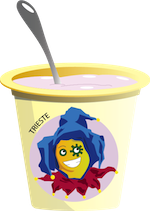Team:Trieste/parts/3
From 2012.igem.org
(Difference between revisions)
Clagnanelisa (Talk | contribs) |
|||
| Line 31: | Line 31: | ||
<br/> | <br/> | ||
<img src="https://static.igem.org/mediawiki/igem.org/4/4c/TriesteT5_Cumate_operator_V.jpg" width="600px"/> | <img src="https://static.igem.org/mediawiki/igem.org/4/4c/TriesteT5_Cumate_operator_V.jpg" width="600px"/> | ||
| - | |||
| - | |||
<br/> | <br/> | ||
<br/> | <br/> | ||
Revision as of 07:03, 26 September 2012
BBa_K875003
More
Description
This composite produces constitutively the CymR regulator protein, that binds the Cumate Operator repressing the transcription from the promoter.
Assembly
Obtained by synthesis.
Results
CymR expression was confirmed by Western Blot analysis. Our CymR has a SV5 tag at the C-terminus in order to be detected by an anti-SV5 Ab. Its functionality was confirmed through the repression of T5 Cumate Operator-GFP.
The validation of the repression of the protein CymR on the T5 cumate operator was verified through the creation of a plasmid containing a single copy of CYM R and the T5 cumate operator upstream the GFP (I13504). We saw that the expression of the GFP was completely repressed in absence of p-cumate but it was active in presence of p-cumate.

Looking forward
As we test that a single copy of CYM R in the plasmid can repress strictly the T5 cumate operator the next step is two integrate in the genome of the bacteria first a single copy of CYM R then the double copy. If this integration is verified we can have together with the T5 operator and the toxin (both cloned in the same plasmid) a simple and efficient system to control bacteria proliferation and specially to avoid the horizontal transfer.
Link to the Registry







 "
"









